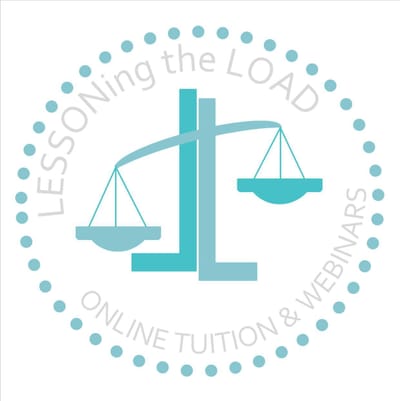What to Do When Exams Are Finished: Supporting Students Through the Post-Exam Blues
The moment exams finish, there’s often a sense of relief. The pressure lifts, the routine of revision ends and suddenly there’s time to breathe. For many students, though, what follows is not celebration but an unexpected wave of deflation, fatigue or even low mood. After weeks – sometimes months – of structured revision and relentless focus, the quiet that follows can feel empty. The structure that once gave shape to each day disappears, and with it, a sense of purpose.
For parents, it can be puzzling to see your son or daughter feeling flat when you expected joy. But this emotional slump is entirely normal – and in some cases, it can be a signal that your child needs emotional support as they adjust to a new rhythm and identity beyond exams.
The Hidden Cost of ‘All In’ Revision
During the lead-up to exams, students often go into full ‘revision mode’. Their days are structured around subjects and schedules. Even if they don’t always enjoy it, revision gives a sense of control and direction. They know what needs to be done, and their purpose – to prepare for exams – becomes central to their identity.
But what happens when that purpose disappears overnight?
The sudden shift from highly focused activity to having no immediate goals can trigger a sense of loss. While students might feel momentary elation that exams are over, the vacuum that follows can create anxiety, listlessness or feelings of ‘what now?’ In some cases, the adrenaline that kept them going begins to wear off, leading to emotional crashes or exhaustion.
Understanding the Post-Exam Slump
Not every student will experience this emotional dip, but for those who do, it can be unsettling. They may struggle to explain what they’re feeling – especially when friends are posting celebratory pictures on social media or when the expectation is that this should be the 'fun' part of the year.
Signs that your child may be experiencing post-exam flatness include:
- Lack of motivation or energy
- Sleeping excessively or struggling to sleep
- Feelings of aimlessness or boredom
- Withdrawal from social activities
- Irritability or emotional sensitivity
- Anxiety about results or the future
It’s important to remember that these responses are not a sign of failure or a lack of resilience. They are part of a natural decompression process. For some students, this time offers an opportunity to reflect, reset and recover – but they may need help to navigate it in a healthy way.

How Parents Can Help
So what can you do to support your child during this transitional period?
1. Validate Their Feelings
Start by letting your child know that it’s okay to feel strange, low or unsure after exams. Avoid the temptation to jump in with solutions or to push them into plans straight away. Simply saying, 'It’s completely normal to feel a bit flat after such a big effort,' can go a long way.
Remind them that the emotional energy they’ve invested in exams was significant. What they’re feeling now is the body and mind’s way of catching up.
2. Encourage Gentle Structure
While it’s important not to replace one rigid routine with another, a complete absence of structure can worsen feelings of aimlessness. Encourage a soft, flexible framework for the day: waking up at a reasonable time, having some kind of plan (even if it’s just a walk, reading a book or meeting a friend), and gently reintroducing hobbies that were sidelined during revision.
Helping them create a loose weekly plan can be helpful, even if it includes downtime or fun activities. Purpose doesn’t have to come from work – it can come from creativity, connection or rest.
3. Support Social Connection
After intense periods of study, some students become quite isolated, particularly if they revised alone or at home. Gently encourage them to reconnect with friends – but don’t force it. Some students may need a little more time to recharge before they feel social again.
For more introverted teens, connection might come through shared activities rather than parties or large gatherings. A quiet cinema trip, a gaming session or going for a coffee can help rekindle a sense of belonging and joy.
4. Avoid Putting Pressure on ‘Next Steps’
It’s natural for parents to want to talk about results, university or careers – but in the immediate aftermath of exams, many students just need time to be. Try to resist the urge to push conversations about the future too soon, unless your child initiates them.
Let them decompress. After a while, you can start gently exploring future aspirations, but frame it in a supportive, non-pressured way.
5. Help Them Reconnect With Joy
Many students park their hobbies during exam season. Now’s a great time to encourage them to rediscover what they love – whether that’s drawing, baking, music, walking in nature or volunteering.
Reconnecting with joy is a powerful antidote to post-exam flatness. It reminds students that they are more than their grades or revision schedules.
6. Watch for Signs of Ongoing Mental Health Struggles
A short period of low mood or fatigue after exams is common and usually resolves itself with rest and reconnection. But if your child’s low mood persists for more than a few weeks, or if they begin to talk about feeling hopeless or overwhelmed, it’s worth seeking additional support.
Reach out to a professional, such as your GP, if you’re concerned or perhaps your child would feel comfortable talking to a therapist (if appropriate). Early support can make a big difference.
A Time for Healing and Growth
Exams, though important, are just one chapter in a student’s story. The time that follows them can be one of healing, growth and reconnection – if handled gently. For many students, this is a rare window of time where they can rest, reassess who they are outside of academic pressures and begin to envision the life they want.
As a parent, your role is not to rush them through this process, but to walk beside them, offering encouragement, patience and quiet confidence. Celebrate the journey they’ve taken, not just the destination they’re heading towards.
And most of all, remind them – and yourself – that they are more than a set of exam results. They are whole, complex, evolving individuals, and this period of stillness can be the fertile soil from which resilience and self-awareness begin to grow.
